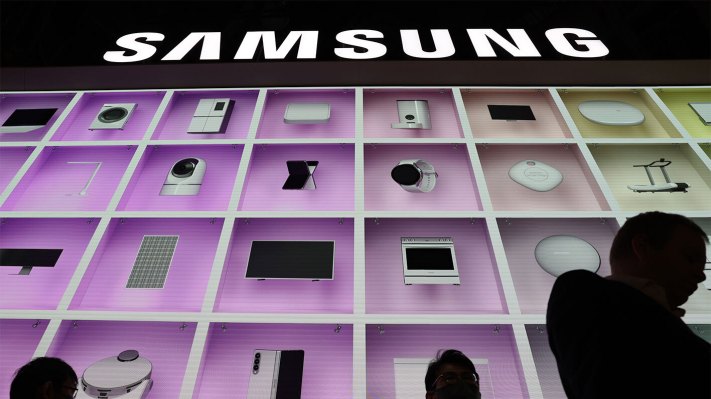

Just a few days after OpenAI’s developer event, Samsung unveiled its own generative AI model, Samsung Gauss, at the Samsung AI Forum 2023.
Samsung Gauss, developed by the tech giant’s research unit Samsung Research, consists of three tools: Samsung Gauss Language, Samsung Gauss Code and Samsung Gauss Image.
Samsung Gauss Language is a large language model that can understand human language and answer questions like ChatGPT. It can be used to increase productivity in several ways. For instance, it can help you write and edit emails, summarize documents, and translate languages. Samsung plans to incorporate the large language model into its devices like phones, laptops and tablets to make the company’s smart devices a bit smarter. When asked if it supports both English and Korean as interaction languages, a spokesperson of Samsung declined to comment on it.
Samsung Gauss Code, which works with its code assistant called code.i, focuses more specifically on development code. The idea is that Samsung Gauss Code could help developers write code quickly. Samsung said the AI model for code will support “code description and test case generation through an interactive interface.”
As for Samsung Gauss Image, as the name suggests, it will be an image generation and editing feature. For instance, it could be used to convert a low-resolution image into a high-resolution one.
The tech company said Samsung Gauss is now being used internally with its staff only but will be available to public users “in the near future.” The company did not elaborate on a timeline. Samsung aims to release Galaxy S24 based on its Generative AI model as early as 2024, according to local media reports.
In addition, Samsung has set up an AI Red Team that monitors security and privacy issues from data collection to AI development, ensuring the safety of AI use based on the principles of AI ethics.
“We will continue to support and collaborate with the industry and academia on generative AI research,” said Daehyun Kim, executive vice president of the Samsung Research Global AI Center, at the AI forum.
Samsung Gauss was named after mathematician Carl Friedrich Gauss, whose theory (the normal distribution) is considered the backbone of AI and machine learning.
Samsung’s generative AI launch comes seven months after Samsung’s temporary ban on generative AI tools on company-owned devices — including OpenAI’s ChatGPT and Google’s Bard — in the wake of its internal data leak earlier this year.